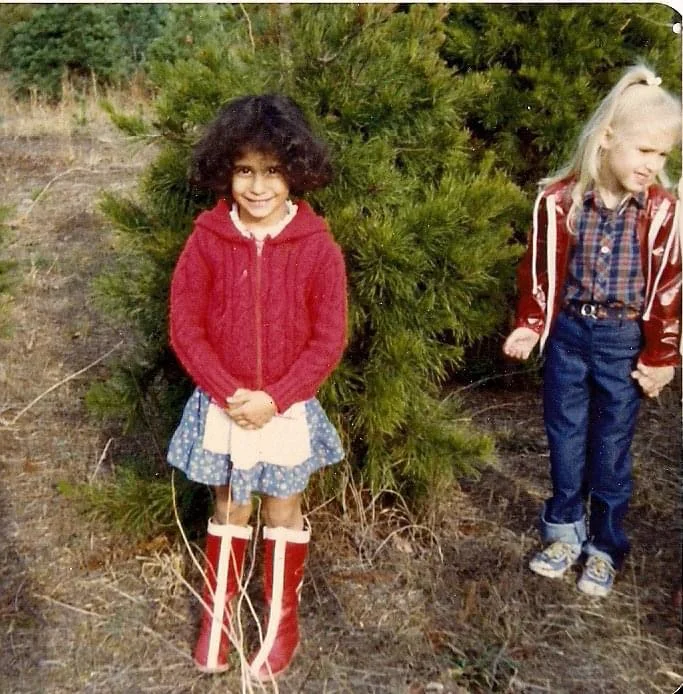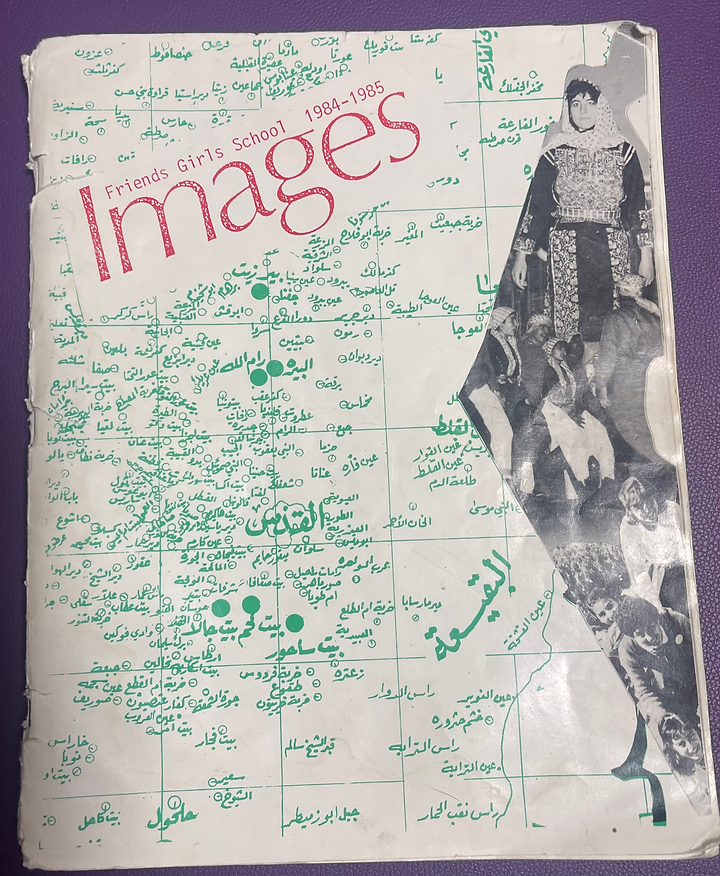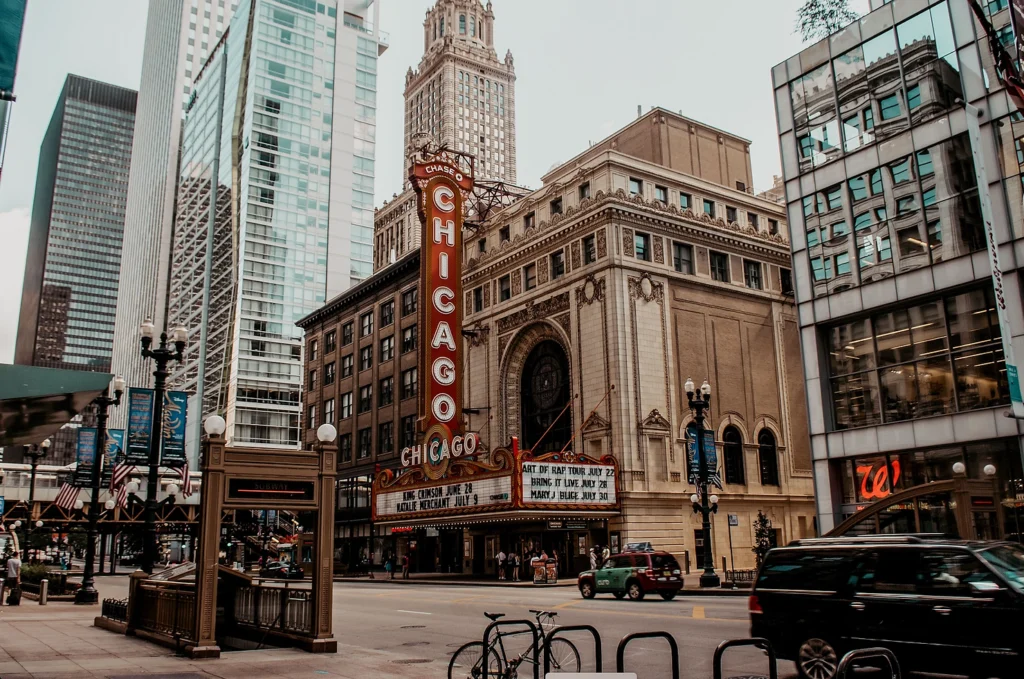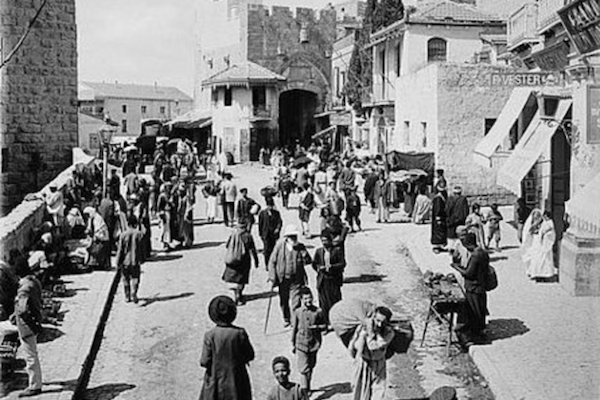
INSPIRE. PRESERVE. RESIST.
Our lives are defined by a series of turning points from which we learn, we grow, we evolve. As a certified history geek, the majority of my life’s events are wrapped in historical elements that help me make sense of my lived experiences. One’s life is never linear, but shaped by the memories that we choose to share. Memories born out of experience color our understanding of the world and the way we walk through it. In this piece, I will share some turning points that helped create the person I am today.
Turning point 1: Khalee Hamid (khalee: Arabic for maternal uncle)
One bit of information about me many do not know is that the first eight years of my life were spent in Richmond, VA. I was born a Southern suburban, middle-class girl surrounded by a paternal large extended family. On any given weekend, when the family gathered, we had between 20-30 kids playing outside while the women watched the latest movies via VHS and the men smoked, and drank strong Turkish coffee while they played cards until the early morning hours. Life was great! Growing up, we were one of two Muslim Palestinian families in the entire neighborhood.

I am the daughter of Palestinian Muslim immigrants growing up as a child of the 80s. I knew we were Muslim because we would fast during Ramadan, celebrate Eid, and not celebrate Christmas. I was different from most other children I went to school with. That was it. No one I knew wore the hijab (Muslim covering for women) unless they were old ladies like my sitto (grandmother). We were more cultural than Muslim.
Arabs are loyal to their families and hospitality was a part of the culture. It was not unusual that our house was a place for relatives to stay with us until they got on their feet. My mother applied for American citizenship for her brother, the only male child among five girls. She was proud of having him come over to stay. He planned on bringing over his young family: a father of five children, three boys and two girls living in Al-Bireh, Palestine while he worked in Virginia to build a better life for them. With the occupation plaguing Palestine, so many people from the region became a part of the diaspora as a means of survival. Living in Palestine was not an option for many Palestinians.
My uncle’s dreams were big; his life was short. I do not recall the exact date of when the event happened, but I replay the details of that night as vividly as if it occurred yesterday. I remember being awakened by the sound of wailing screams piercing my ears coming from outside of the house. At first, I thought my dad and uncle were arguing over a card game, but the screams persisted, invoking a terrible feeling of dread; something was definitely wrong. I looked outside my bedroom window to find my dad and maternal aunt’s husband running and screaming in the front yard. This felt very odd, so I ran out of my bedroom frantically to find out what happened. I walked through the hallway to the top of the stairs where I saw my older sister sitting at the top of the steps, her eyes clearly reflecting despair and anguish at what lay ahead of her. Frozen. The screams got louder. The words were incomprehensible. I looked down at the bottom of the stairs to find khalee Hamid lying on the floor in a pool of blood. My father and other uncle were trying to resuscitate him. His eyes opened then closed. Opened then closed. All I was told was that khalee’s death was the result of a home invasion gone wrong. Murdered in our own house. Not only was a loved one ripped from us in that moment but the safety of home and the warmth of it was also murdered. Childhood innocence was stolen and replaced with memories that were all black. I recall my uncle’s funeral, selling our house, and all of our belongings, and we are on our way across the globe to live in the West Bank, Palestine. As is the condition of so many displaced Palestinians, we were on the move again. Loss, tragedy, and instability often defined so much of our existence. Our lives would never be the same!
Turning Point 2: Friends Girls School, Ramallah
The first day I woke up in Palestine, I was at my maternal grandmother, Sittee Aminah’s, house. I sat outside, groggy-eyed, the sun hitting my face wondering: where the hell am I? I missed our house in Virginia, missed watching my shows, my school, friends, belongings, and wanted some cereal. Adjustment was not easy. I was now the “Amrekeeyeh,” the American. The irony was this was home and my American identity made me different here too.
We moved to my dad’s small village where everyone knew everyone and everyone knew everyone’s business. My mom, being the strong-willed woman that she was, knew that in order for my older sister and I to keep up with our education, we would have to be registered in an American, English-speaking school.

She registered both of us in the Friends Girls School in the old part of Ramallah. This school is an affiliate of the Quaker Friends which was run by expats who were all ex-hippies. Attending the school was such a cultural experience. I learned about the children of the Palestinian diaspora, Palestinians living in The Caribbean, Puerto Rico, the UK, Europe, and all over the United States. I had no idea there were other children growing up like I did. We all loved the same American culture that had become familiar to us. After all, America was home and the culture was ours too. Attending the school, I learned about other parts of the world from the international students who were Scandinavian, Armenian, Scottish, and more. My teachers, Quakers, and hippies, taught us about peaceful protest, civic action, and all of the protest songs from the 60’s-70’s. Blowing in the Wind? That was our anthem.
Being a child of more than one world is often confusing; moving to Palestine took some huge adjustments. Attending Friends was a sanctuary. A place I could be myself but also develop a better sense of my own identity. I learned more about who I was, my ancestors, and the rich culture and history that permeated the air of Palestine.
We lived in Palestine for three years, but it was a struggle. My mom was raising six children on her own, and the distance between her and my father was taking its toll on their relationship and ultimately on our family unit. She worked on having us return to the states. Her saving grace: the first Intifada broke out so schools were closing with the threat of more protests looming. My mother took the chance by using our American citizenship as our way out. The winter of 1986 marked our return. We landed at Chicago O’hare airport to begin a new life…again.
Turning Point 3: Once a Southsider always a Southsider
I remember we landed in Chicago in the winter because there was snow and it was freezing! I never felt that frigid weather before. After being separated from my father for three years, we were reunited as a family, my mom, dad, and six children. I continued to yearn for our home in Virginia, so I was anxious at the prospect of building a new life once again.
We settled near Marquette Park at first. Chicago was different from Virginia and very different in comparison to Palestine. There was an attitude about the city I had to adjust to and fast! Later I learned the reason for moving to Chicago; my mother wanted to be there even before the murder of khalee. She heard of the large Palestinian community and wanted to be in a community that felt as close to home as possible. My mom advocated for the education of her daughters. She pressed to have my sisters and me attend Aqsa Girls School in Bridgeview. This was the first all-girls Muslim parochial school in the country for grades 6-12. The school was similar to the Friends School and was populated with girls who came from similar backgrounds like myself. The school was very small but mighty. My experience there was just like the Friends but now in Chicago. I was engrossed in learning more about my culture as a Palestinian but now we were exposed to the Muslim aspect of our community. Prior to living in Chicago, we were not practicing. Now that we were living in a community that revolved around the mosque, our lives centered around the Palestinian-Muslim community. Chicago became my identity because it became my stability. There was no more shuffling around. We moved from Marquette Park to Gage Park to the southwest suburbs, but that was where we stayed; Southsiders we became, and until this day proudly we represent. Chicago was finally HOME.

The lives of Palestinians in the diaspora are often defined by movement and instability because we do not have a homeland we can claim. My life began in Virginia, moved to Palestine, and finally settled in Chicago. The turning points and transitions in all three homes are special and have worked to shape who I am today.
This blog post is part of the #30DaysArabVoices Blog Series, a month-long movement to feature the voices of Arabs as writers and scholars.
